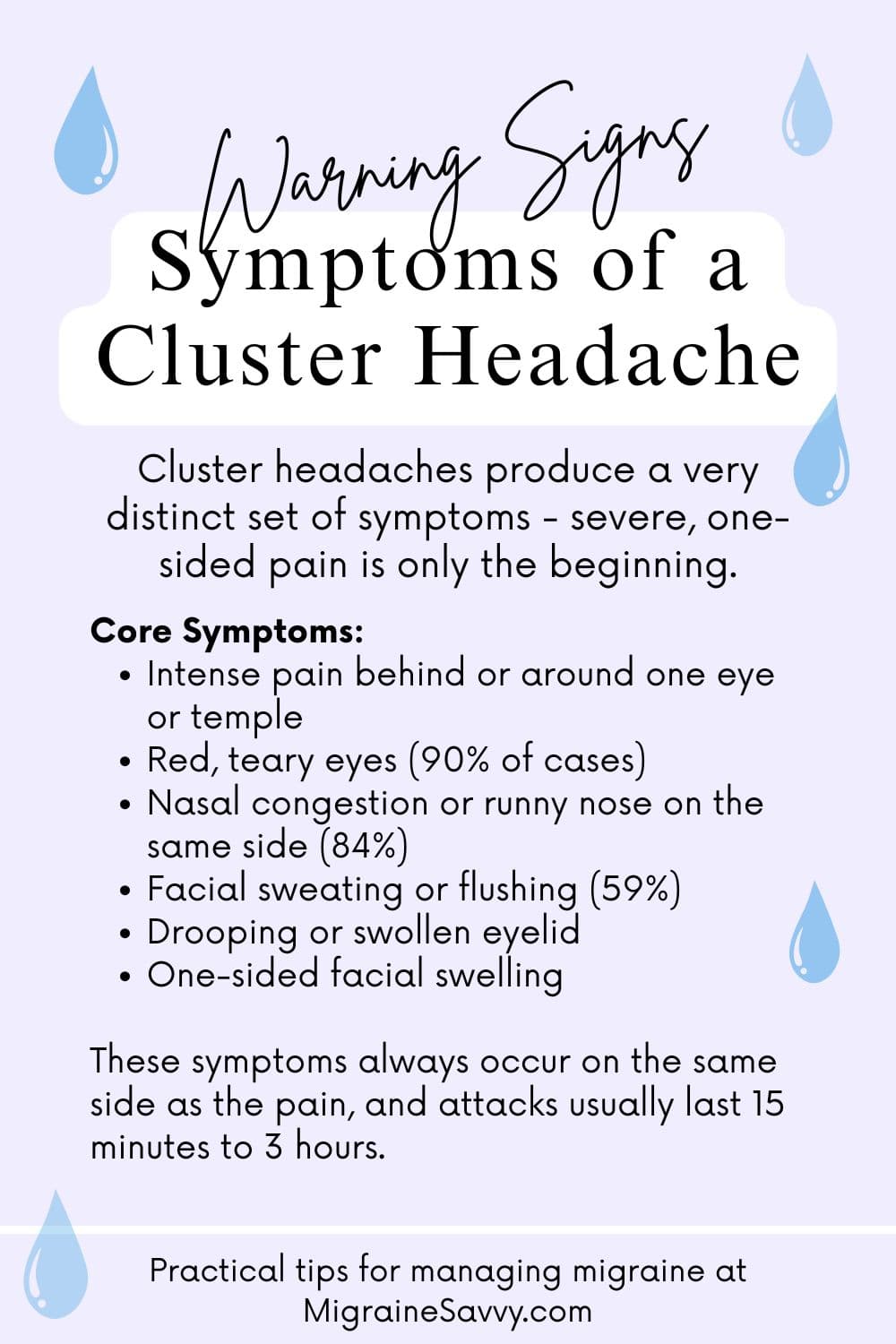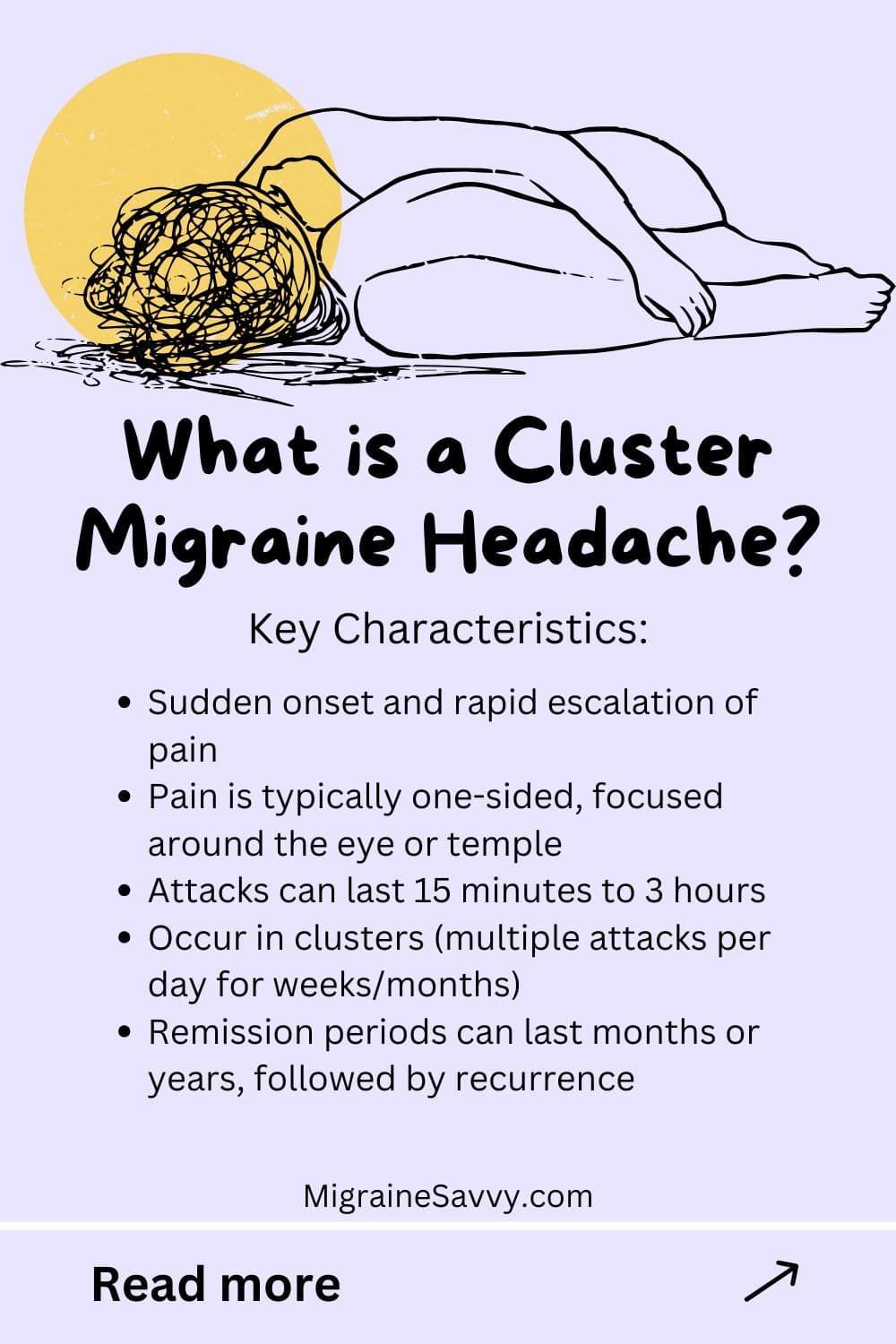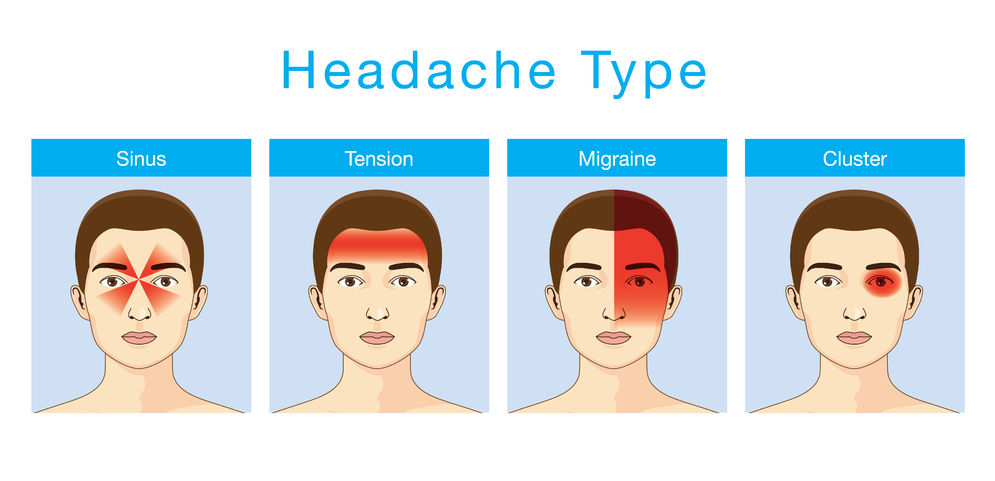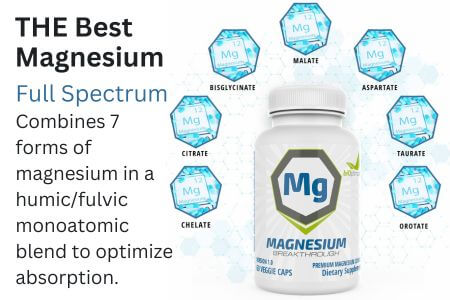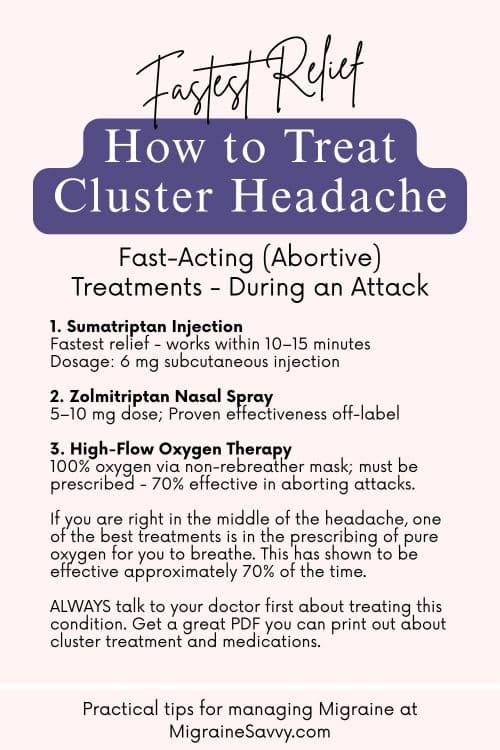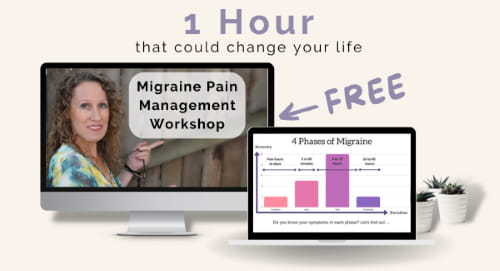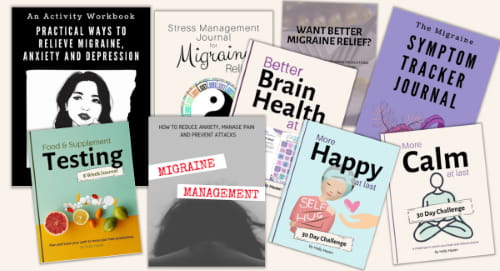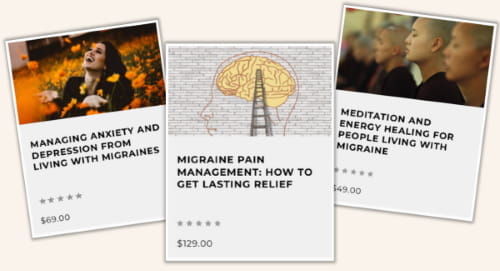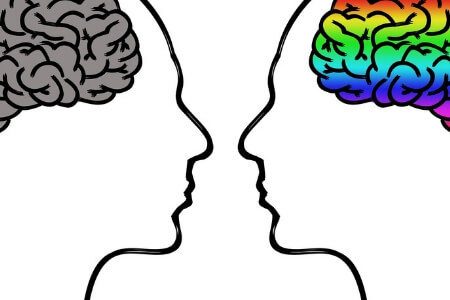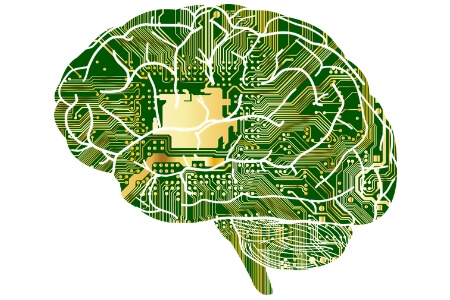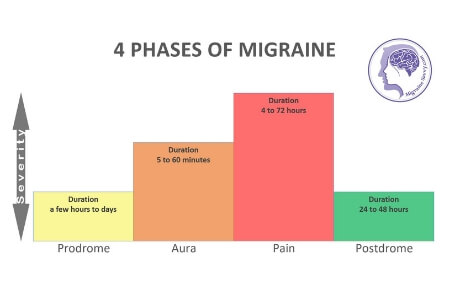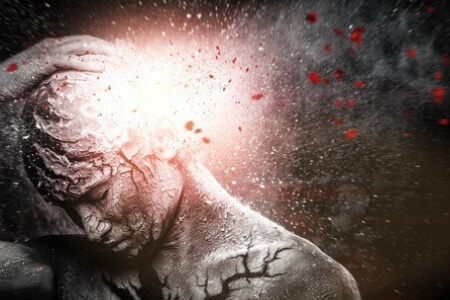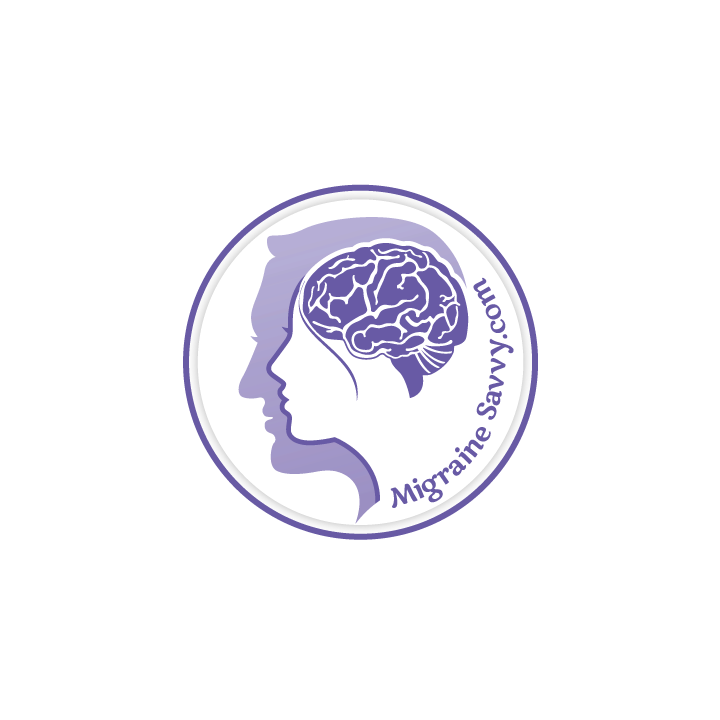- Home
- Migraine Types
- What Is a Cluster Migraine
What Is a Cluster Migraine? Symptoms, Signs, and Effective Relief
What is a Cluster Migraine?
While many people search for "cluster migraine," the medically correct term is cluster headache. Cluster headaches are among the most painful types of primary headaches, often described as 10 out of 10 on the pain scale.
They’re sometimes called "suicide headaches" because of the sheer intensity and the emotional toll they take on sufferers. Though not life-threatening, they can drastically reduce your quality of life.
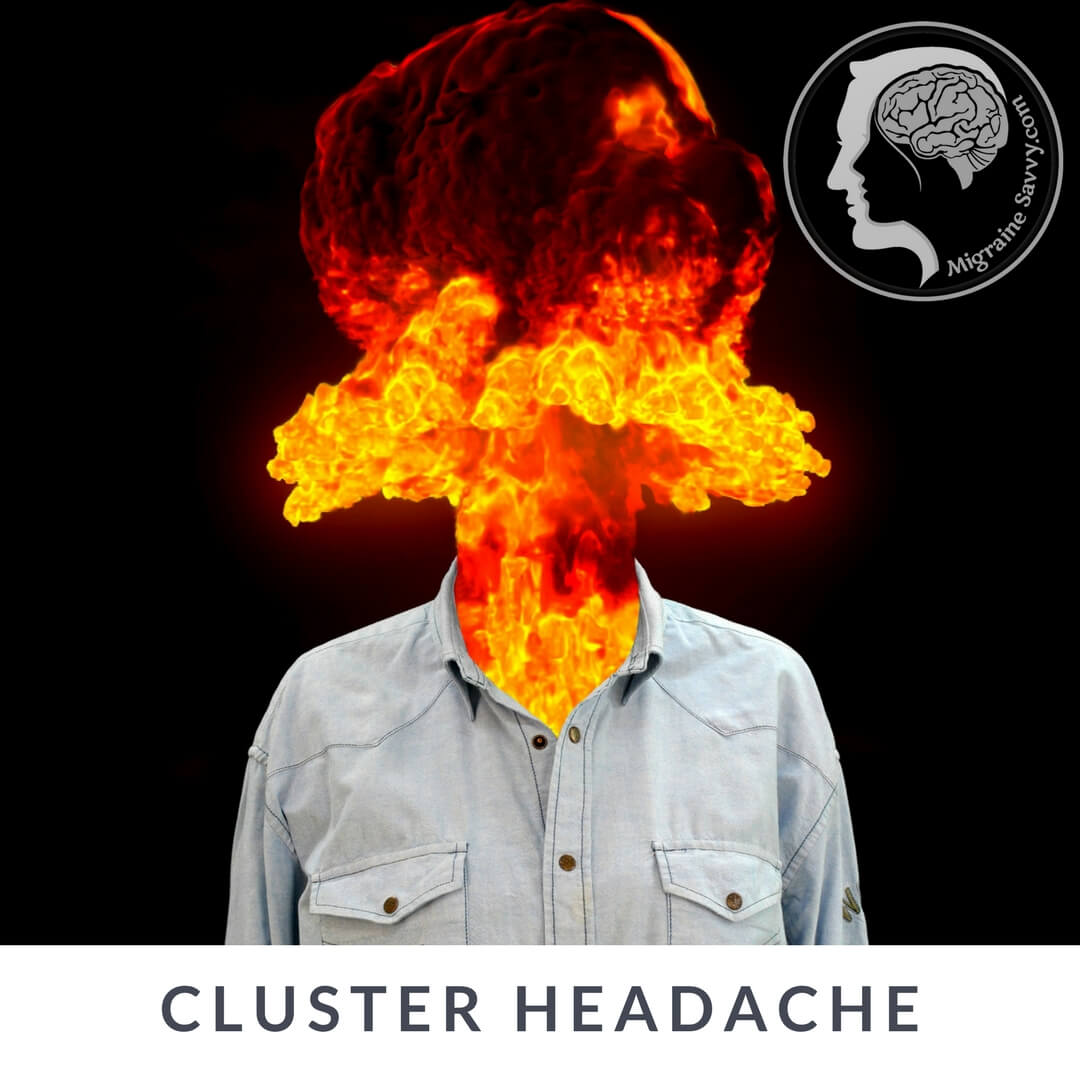 Cluster headaches strike fast, hit hard - and affect men 3x more than women. But the pain doesn’t discriminate.
Cluster headaches strike fast, hit hard - and affect men 3x more than women. But the pain doesn’t discriminate.If you’ve found yourself searching for help, answers, or simply a name for this kind of pain - you're not alone. These headaches strike fast, hit hard, and can completely disrupt your sleep, your work, and your emotional stability.
Below you’ll learn exactly what a cluster migraine is (and why that term isn’t quite right), the symptoms to watch for, how to manage the pain, and what treatments - medical and natural - can actually help.
What Is a Cluster Migraine?
A "cluster migraine" is a non-medical term that people often use to describe a specific type of extremely painful, one-sided headache that occurs in intense, recurring bursts or "clusters."
The correct medical term is cluster headache, which belongs to a group of primary headache disorders called Trigeminal Autonomic Cephalalgias (TACs). Cluster headaches are considered the most severe form of headache, often described as 10 out of 10 on the pain scale.
These headaches are distinct from migraine. They:
- Come on suddenly, without warning
- Last 15 minutes to 3 hours
- Occur multiple times per day in cycles lasting weeks or months
- Are almost always one-sided, with pain typically around the eye or temple
Unlike migraine, cluster headache pain is not throbbing, but instead piercing, stabbing, or burning. While both conditions can involve facial symptoms, cluster headaches often cause tearing, nasal congestion, and agitation during an attack.
Because of their timing and severity, many sufferers confuse cluster headaches with migraine - but the treatment, symptoms, and management strategies are different.
What Causes Cluster Headaches?
The exact cause of cluster headaches is not fully understood, but research suggests they originate in the hypothalamus - the part of the brain that regulates biological rhythms like sleep and wake cycles. This may explain why attacks often occur at the same time each day or night, and why they tend to follow seasonal patterns for some people.
Cluster headaches also activate the trigeminal nerve, which is responsible for facial sensation and pain signals. This is why the pain is concentrated around one eye or temple. Cluster headache is part of a group of disorders known as Trigeminal Autonomic Cephalalgias (TACs) - headaches that involve both nerve activation and autonomic symptoms (like tearing, nasal congestion, and facial flushing).
Common Triggers During a Cluster Cycle:
- Alcohol (especially during an active cluster period)
- Strong smells (gasoline, perfume, cleaning products)
- High altitudes or air pressure changes
- Cigarette smoke (active or second-hand)
- Bright light, heat, or intense exercise
These triggers don’t cause cluster headaches directly but can provoke attacks during a vulnerable period (called a cluster cycle). Outside of these periods, they may not affect you at all.
Symptoms of a Cluster Headache
Understanding what is a cluster migraine includes recognizing the symptoms that make this condition uniquely intense and predictable.
Cluster headaches produce a very distinct set of symptoms - severe, one-sided pain is only the beginning.
Core Symptoms:
- Intense pain behind or around one eye or temple
- Red, teary eyes (90% of cases)
- Nasal congestion or runny nose on the same side (84%)
- Facial sweating or flushing (59%)
- Drooping or swollen eyelid
- One-sided facial swelling
These symptoms always occur on the same side as the pain, and attacks usually last 15 minutes to 3 hours.
Other Cluster Headache Signs (Less talked about, but very real)
- Extreme restlessness or agitation
- Pacing, rocking, or inability to sit still
- Waking up at the same time every night with pain (often 1–3 am)
- Suicidal thoughts or violent behavior (seek help immediately)
Cluster headache pain doesn’t build - it slams into you. The pattern is predictable, but the pain is often unbearable.

What Is a Cluster Migraine: Key Characteristics Explained
To fully understand what a cluster migraine is, let’s look at the key characteristics that define this painful condition.
- Sudden onset and rapid escalation of pain
- Pain is typically one-sided, focused around the eye or temple
- Attacks can last 15 minutes to 3 hours
- Occur in clusters (multiple attacks per day for weeks/months)
- Remission periods can last months or years, followed by recurrence
What type of headache can disappear for a few months, or years and then hit hard and fast? This one can.

The term cluster headache refers to a type of headache that comes in groups. It is not a cluster of headaches – it’s a distinct event of a number of headache episodes. For up to 90% of cluster patients – and the reason they coined the term cluster is - the cluster is over weeks or months when you are vulnerable to repeated attacks – after which you get no attacks. [5]
You might experience one to three (or more) headaches per day over a period of a couple of weeks, up to three months continuously with no break. They may come and go... or they may never go.
They could completely disappear or go into remission for months or even years and then start to recur. And then you become engulfed by an intermittent world of intense, unbearable, pain and symptoms... again.
Cluster headaches are not common; therefore they fall into a place with few specialists. And they affect more men than women by three to one.
3 Males: 1 Female
These patterns are not seen in the general migraine population.
What Does Migraine and Cluster Headache Have in Common?
There are many experts that believe migraines and cluster headaches have a common cause that begins in the trigeminal nerve which carries the feeling of sensation from the head to the brain.
A migraine usually stems from a chemical reaction causing a nerve storm and then blood vessels to spasm in the head. They typically last from 4 - 72 hours.
Migraine pain can range anywhere from mild to severe and is typically located on one side of the head, the back of the neck and or around the face and eyes. Symptoms accompanying classic migraine types can include such things as nausea, vomiting; sensitivity to light, sound, or smell; stuffy nose, watery eyes; dizziness and visual disturbances.
Cluster headaches start in the brain (activated nerves in the face and head) and involve the vascular system. They appear in cycles. They're uniform and therefore somewhat predictable. [5]
The pain is so severe that they have been called suicide headaches. The pain with cluster headaches is usually on one side of the face and can be accompanied by nasal congestion, watery eyes, and a runny nose.
Cluster headaches normally come on faster and leave quicker than a classical migraine.
The similarities which link the migraine and the cluster headaches, include the one sided pain and the congestion.
A migraine typically has a moderate to severe throbbing quality. It can last 4 to 72 hours (or more).
The pain experienced with a cluster headache is usually intense, sharp... and violent. It can last 15 minutes to 3 hours.
My #1 Choice in Magnesium Supplementation
What Cluster Headache Has That Migraine Doesn’t
While migraine and cluster headache share some symptoms, cluster has its own distinct features that set it apart.
What they do not have in common...
- No light sensitivity
- Not sensitive to touch
- VERY agitated
- Puffy or drooping eyelid*
- Wake you up 1 - 2 am
- Propensity for self-harm
- Suicidal thoughts and violent behavior
- Facial flushing and sweating*
- Time span and time occuring **
*These are some of the common autonomic symptoms of cluster headache. Others are: pupil constriction, conjunctival redness, runny nose... on one side of the head.
** They occur at the same time every night, or every day like clock work. They last exactly so many minutes. You can count the minutes they last once you establish your pattern. They are predictable.
Symptoms like: one sided tearing and swollen eye, and a runny nose can also accompany migraine. The pain can be intense in both migraines and cluster headache.
Cluster Headache vs Migraine: Key Differences
LET'S RECAP
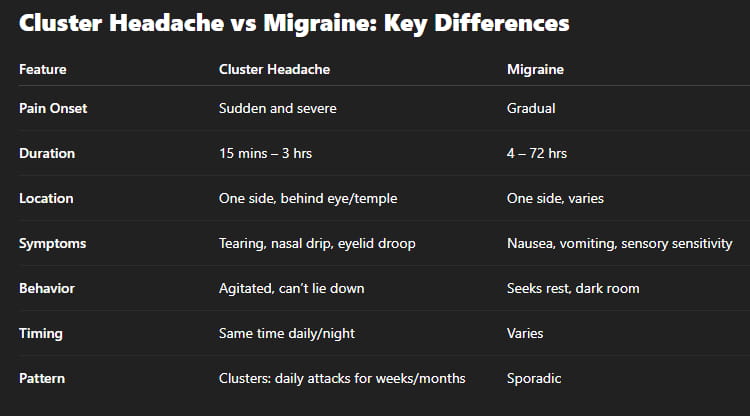
Types of Cluster Headaches
- Episodic: Attacks come in bursts, lasting weeks or months, followed by periods of remission.
- Chronic: Attacks occur for a year or more with no remission, or remission lasts less than 3 months.
How to Treat Cluster Headaches
Fast-Acting (Abortive) Treatments - During an Attack
1. Sumatriptan Injection
- Fastest relief: works within 10–15 minutes
- Dosage: 6 mg subcutaneous injection
2. Zolmitriptan Nasal Spray
- 5–10 mg dose
- Proven effectiveness off-label [5]
3. High-Flow Oxygen Therapy
- 100% oxygen via non-rebreather mask
- Must be prescribed - 70% effective in aborting attacks [5]
If you are right in the middle of the headache, one of the best treatments is in the prescribing of pure oxygen for you to breathe. This has shown to be effective approximately 70% of the time.
Dr. Brian McGeeney prescribes 100% high flow oxygen with a non-rebreather mask NOT via a nasal cannula. This should also abort in 10-15 minutes for a great majority of sufferers. [5]
If treatment is not successful with oxygen therapy, you can consider having Botox injections and there is a surgery available that will get rid of the nerve itself. Or nerves.
There is risk with the surgery, but some people feel it is worth the risk because of the severity of the pain and the destruction that brings with it.
Preventive (Prophylactic) Treatment Options
These are used to break or shorten the cluster cycle:
- Verapamil - often first-line prevention
- Melatonin (9 mg at bedtime) - may help with sleep and regulate circadian rhythm
- Vitamin D3 (up to 10,000 IU) - anecdotal support, monitor with doctor
- Lithium or corticosteroids - in some cases
*Always consult your doctor before starting preventive treatment.*
This PDF is a helpful starting point, but it may be outdated - treatments for cluster headaches evolve rapidly. Use it as a reference to discuss options with your doctor or specialist and always rely on current medical guidance for the most effective and safe treatment plan.
Alternative & Device-Based Treatments
- FDA-approved for cluster headache
- Stimulates the Vagus nerve non-invasively (handheld stimulator) through the neck
- No systemic side effects or drug interactions (low risk) [3]
- Sometimes used off-label for chronic sufferers
- Evidence limited but growing (some anecdotal success)
- Considered only after exhausting other options
- Involves severing or damaging the trigeminal nerve
- Carries significant risks*
*Nerve-blocking surgery – only in extreme, drug-resistant cases.
Take Your Migraine Relief Strategy Further
Struggling to manage migraine beyond just medications? My book series offers evidence-backed strategies to reduce attacks, improve sleep, and regain control of your life.
Emotional Toll of Cluster Headaches
Cluster headaches don’t just hurt - they devastate your emotional wellbeing.
>> Depression, anxiety, suicidal thoughts, and social withdrawal are common.
If you’ve felt hopeless, you’re not alone. Many people living with cluster headaches experience emotional breakdowns, isolation, and struggle to explain the pain to others.
What You Can Do:
- Join support groups: OUCH UK, and Clusterbusters.org
- Seek help from a pain counselor or therapist
- Talk to your doctor about emotional symptoms - these are part of the condition too
You’re Not Alone in This
If cluster headaches are affecting your mental health, relationships, or sense of peace, there are tools that can help. I have two books: Migraine Management: How to Reduce Anxiety, Manage Pain, and Prevent Attacks and Practical Ways to Relieve Migraine, Anxiety and Depression: An Activity Journal Workbook, where you’ll find emotional strategies to feel more resourced and supported.
How to Prepare for Your Doctor’s Appointment
Prepare ahead of your visit:
- Keep a headache diary (time, intensity, duration, triggers, symptoms)
- Record a video during an attack (if possible)
- Bring a list of all treatments tried (and results)
- Bring resources like this >> Dr. Goadsby Cluster Headache Guide (PDF)
- Ask about insurance coverage for devices like gammaCore or oxygen therapy
- Consider asking for a referral to a headache specialist
These tools can help your doctor diagnose faster and treat more effectively.

My Personal Advice for Those Living with Cluster Migraines
"You Never Get Just One."
If you are having cluster headaches / cluster migraines, then I'm sad to say, you will not have just one attack.
You will have several in a series of headaches and you will have them on a regular basis.
There are some of us that do not have any periods of remission, having a continuous series of these disturbing symptoms and relentless pain.
I had cluster attacks for about 8 years and then they went away. I consider myself one of the lucky ones.
Cluster migraines don’t just happen - they invade. That’s why I urge you to build a long-term strategy that includes both medical and emotional support.
My Top 3 Tips:
1. See a neurologist who specializes in headache disorders.
2. Get a treatment plan in place ASAP - including abortive and preventive therapies.
3. Don’t suffer in silence. Join support groups. You are not alone.
Natural & Lifestyle Support
Try These 4 Evidence-Informed Options:
- Avoid Alcohol – a well-known trigger, especially during a cluster cycle
- Try Melatonin (9 mg) – supports sleep and potentially reduces attack frequency
- Test High-Dose Vitamin D (10,000 IU) – must monitor levels regularly with your doctor
- Drink Kudzu root (anecdotal) – some report reduced frequency/intensity
Always discuss new treatments or supplements with a healthcare provider.
Final Thoughts: Yes, Relief Is Possible
If you’ve been searching to understand what is a cluster migraine, know this: you are not alone, and relief is possible.
With the right medical treatment, emotional support, and self-care strategies, you can regain control - even in the face of 10/10 pain.
You never get just one... but you can fight back with more than one strategy.
Explore Further Support & Books
Want deeper answers, natural solutions, and a comprehensive toolkit to manage migraine attacks? Browse all of my books - covering prevention, pain relief, food triggers, emotional support, and more.
Stay connected...
I respect your privacy. Your email is safe and used only for this newsletter.
Ready to take the next step?
Choose the next step that fits where you are right now.
MIGRAINE TYPES Related Articles
What is a Cluster Migraine References:
1. Clusterbusters.org (2025)
2. The International Classification of Headache Disorders 3rd edition (2016) Available [Online] at: https://www.ichd-3.org/
3. MedScape (2017) FDA Approves Vagus Nerve Stimulation Device for Cluster Headache. Available [Online] at: http://www.medscape.com/viewarticle/878763
4. Bruce, Scott (2018) Migraine World Summit. Available [online] at: https://www.migrainesavvy.com/migraine-world-summit.html
5. Dr. Brian McGeeney (2019) Alternative Treatments for Cluster Headache. Available [online] at: https://www.migrainesavvy.com/summit
6. Dr. Peter Goadsby (Treatment Guide)
What is a cluster migraine updated May 2025
